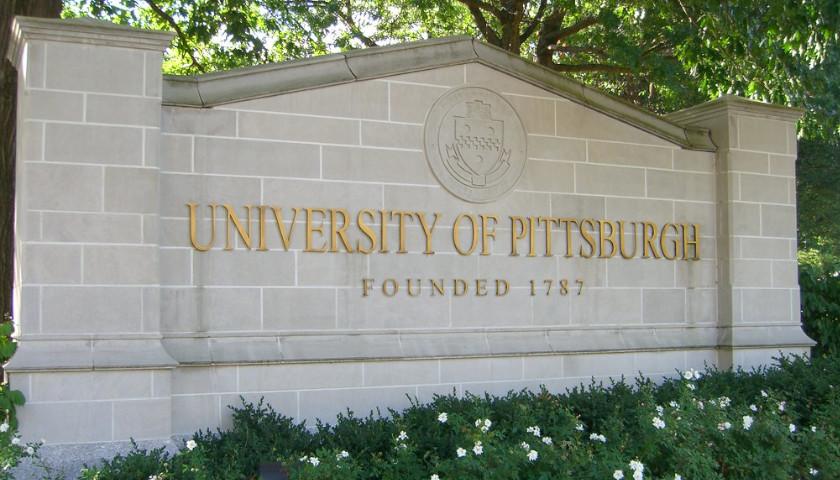by Elizabeth Troutman
A federal probe may reveal violations of law in the University of Pittsburgh’s testing of body parts from aborted babies, according to a pro-life organization monitoring the school’s program.
The U.S. government began investigating the University of Pittsburgh’s protocols in its program to harvest fetal organs, documents released under the Freedom of Information Act reveal.
Pitt came under fire in August 2021 for potentially violating federal law by altering abortion procedures to harvest organs from babies old enough to survive outside the womb.
Planned Parenthood of Western Pennsylvania provides university researchers with the aborted bodies of unborn babies, according to the pro-life Center for Medical Progress, which sought the documents.
The Office of Inspector General in the U.S. Department of Health and Human Services subpoenaed the University of Pittsburgh on Oct. 28, 2021, for information about its organ-harvesting program called Genitourinary Development Molecular Anatomy.
The subpoena is revealed in documents obtained through the Freedom of Information Act by the Center for Medical Progress and the government watchdog Judicial Watch, then published Dec. 12 by the center.
David Daleiden, founder of the Center for Medical Progress, told The Daily Signal that he believes Pitt’s research program disregarded humanitarian concerns associated with testing fetal body parts.
“People who are disturbed by barbaric experiments with aborted babies would love nothing more than to see institutions like the University of Pittsburgh commit to ethical research only,” Daleiden said in an email Thursday, adding that such ethical research “does not rely on exploiting the unequal and vulnerable status of children in the womb and women or couples experiencing a challenging pregnancy.”
Daleiden, his associates at the Center for Medical Progress, and his lawyers have been entangled in legal proceedings since 2015, when Daleiden made and released undercover videos in which Planned Parenthood officials apparently discussed the sale of fetal body parts to research facilities.
Planned Parenthood consistently has denied any wrongdoing by its employees in the recorded conversations. In November 2019, after a civil trial, a California jury awarded Planned Parenthood and others over $2.2 million. That verdict is under appeal.
In a Nov. 5, 2022, email to a National Institutes of Health official uncovered by the FOIA request, Pitt’s senior vice chairman for research, Rob Rutenbar, wrote: “With regard to your request for documentation/information, please be aware that we received a subpoena from HHS OIG requesting similar documentation on Oct. 28.”
More than 65 Republican congressmen and senators had demanded an investigation into fetal tissue research in a letter dated Sept. 21, 2021.
The lawmakers sent the letter after the Center for Medical Progress revealed that the National Institutes of Health had awarded about $1.5 million to Pitt to study “congenital diseases of the genitourinary tract (kidneys, bladder, ureter, urethra)” by obtaining those organs from aborted babies for research.
The released documents show that the congressional lawmakers’ call for a federal investigation was answered by HHS’ Office of Inspector General.
Michael Lauer, NIH’s deputy director for extramural research, emailed Pitt’s Rutenbar asking for a copy of the school’s human fetal tissue testing policies and standard procedures, documentation of patient consent protocols, tissue collection procedures, and an explanation of tissue obtained from unborn babies after 25 weeks of gestation.
“The scientific and ethical challenges associated with research utilizing human fetal tissue make it imperative that researchers and their organizations be fully aware of and in compliance with the federal requirements,” Lauer said in the email to Rutenbar dated Sept. 27, 2021.
Pitt’s 2016 application for a federal grant of $600,000 emphasized that it minimizes the “warm ischemia time” for aborted fetuses, meaning the amount of time a baby’s body parts would remain at body temperature after the blood supply had been cut off but before the body parts were cooled.
Federal law prohibits the alteration of abortion procedures solely for the purpose of obtaining fetal tissue.
NIH, HHS, and the University of Pittsburgh did not respond to The Daily Signal’s requests for comment before publication time. The Daily Signal also sought comment from Planned Parenthood of Western Pennsyvania and the Planned Parenthood Federation of America, but received no response.
Rutenbar acknowledged Pitt’s awareness of allegations about the university’s fetal testing procedures but denied misconduct in an Oct. 26, 2021, letter to the NIH’s Lauer, the released documents show.
“As we discussed during the phone call, the university maintains rigorous protocols and procedures to ensure that researchers comply with all legal requirements and ethical duties related to fetal tissue research,” Rutenbar said in the email.
“While we have no evidence of non-compliance with any applicable legal requirements,” the Pitt official added, “as part of our ongoing commitment to our obligations, we have commissioned the law firm of Hyman, Phelps & McNamara to conduct an independent review of the university’s fetal tissue research processes and practices.”
In the email, Rutenbar described Pitt’s protocol for picking up fetal tissue from Planned Parenthood and reviewing the patient consent form. No tissue was tested from unborn babies after 25 weeks, he said.
Pitt’s biospecimen core, the group responsible for tissue research, minimizes “warm ischemia time,” defined as “the time between the core staff receiving the specimen and depositing it into the core’s storage facility,” Rutenbar added.
“This means that once tissue is made available to the core, core staff transport it to the storage facility as quickly as possible and log the time it took to do so,” he said.
Senior administrators at Pitt defended the school’s organ-harvesting policies, referring to investigations of the university’s tests on fetal tissue as “efforts to undermine important science using fetal tissue,” according to one of the obtained documents.
Pitt responded to “rotating attacks about research using fetal tissue” with what it called an outside review of procedures, while believing it followed all appropriate laws, Jeremy Berg, Pitt’s associate senior vice chancellor for science strategy and planning, told NIH Distinguished Investigator Francis Collins, the agency’s former director, in an email Oct. 16, 2021.
“We have been discussing these issues and it seems that this is an organized attempt to delegitimize science based on fetal tissue rather than to identify misbehavior (although, of course, any misbehavior does create opportunities for outrage),” Pitt’s Berg wrote to NIH’s Collins. “In light of this, we feel that the scientific community would benefit if more institutions could stand together to take some of the power out of the one-at-a-time strategy that appears to be operating.”
The Center for Medical Progress, Daleiden’s pro-life organization, hopes to undo redactions regarding results of the federal subpoena in the documents released under the Freedom of Information Act.
“Working together with Judicial Watch, we are continuing litigation against NIH seeking further production and un-redaction of documents under FOIA concerning the University of Pittsburgh and the GUDMAP program,” Daleiden said, referring to Pitt’s tissue-harvesting program. “We hope to have more to report soon.”
The federal investigation of Pitt’s program is an encouraging sign, but it would be more so if the Biden administration forbade use of taxpayer dollars to support “unethical and obsolete” fetal tissue research, Melanie Israel, a policy analyst in The Heritage Foundation’s DeVos Center for Life, Religion, and Family, told The Daily Signal. (The Daily Signal is Heritage’s news outlet.)
“When President [Joe] Biden took office, HHS reversed the Trump administration’s ban on funding for NIH intramural research and a requirement that extramural research be subject to an ethics advisory board,” Israel said. “The next conservative administration should right the ship. NIH should support life-saving research that also respects innocent human life, and Congress should prohibit research using fetal tissue obtained from elective abortions once and for all.”
– – –
Elizabeth Troutman is a contributor to The Daily Signal.
Photo “University of Pittsburgh Sign” by Fred. CC BY-NC-SA 2.0.






Basically, Planned Parenthood gets federal money to encourage abortion, then after successfully convincing the mother to abort her child they sell the now dead baby to the University for additional profit. This is ethical, how? This is legal, how? And how can we continue to allow taxpayer funded organ harvesting – especially of the most vulnerable humans on the planet?